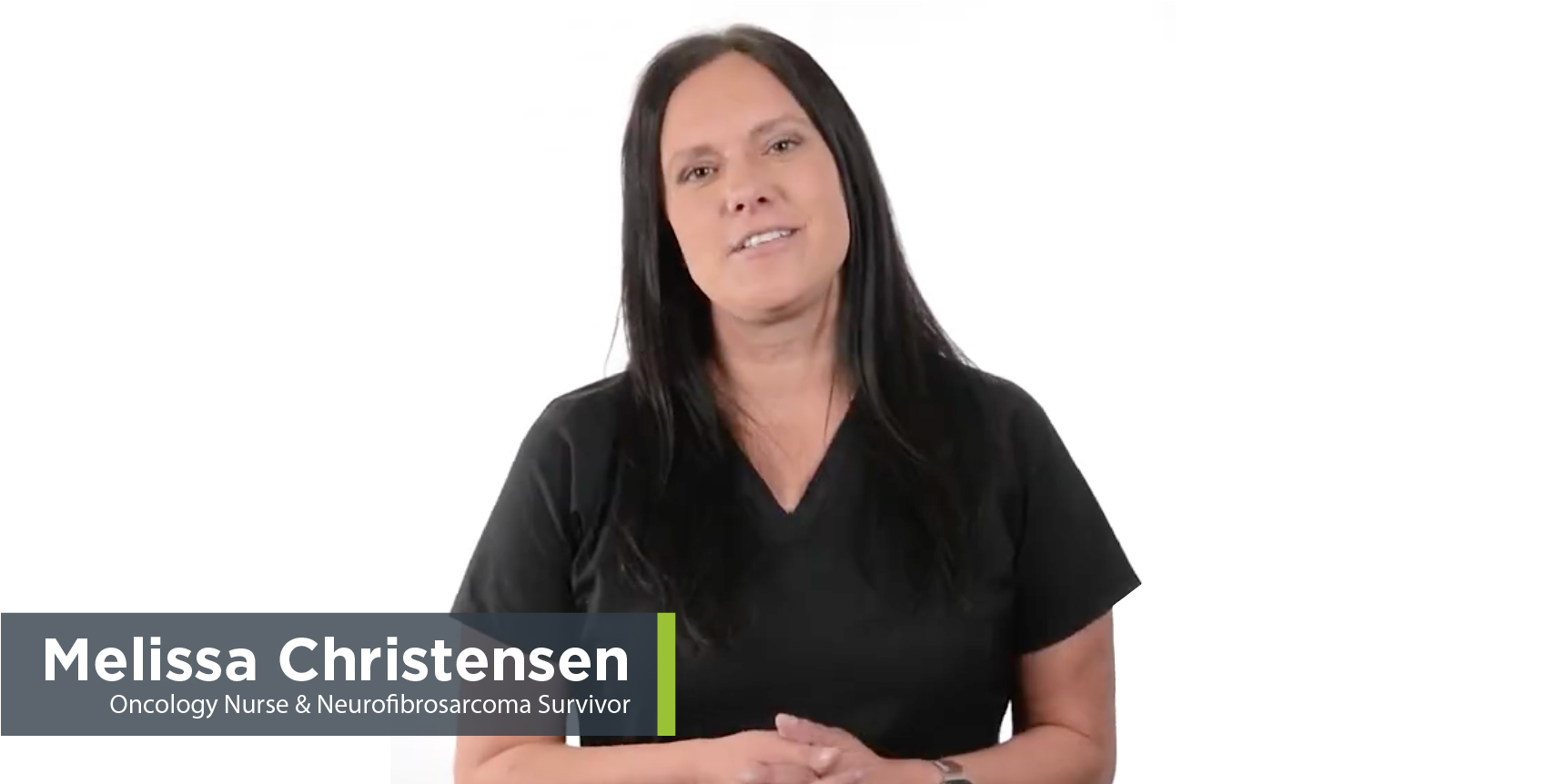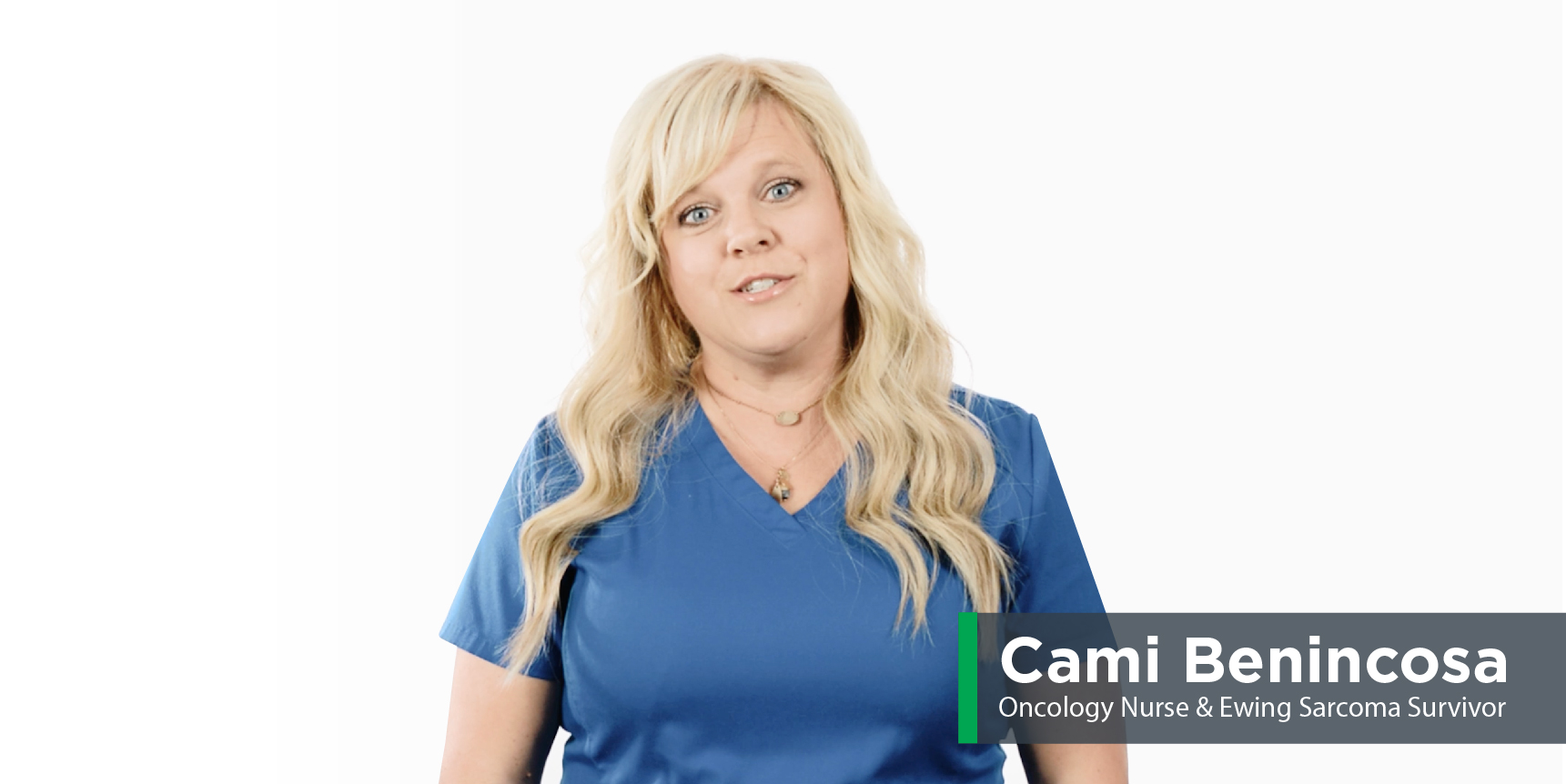Cancer Survivors Discuss How to Support a Diagnosed Loved One
- Category: Women's Health
- Posted On:
- Written By: Cami Benincosa and Melissa Christensen

Finding out a loved one has cancer can be devastating. It leaves you shocked and concerned about the best way to support them. Remember that there's no rule book when it comes to supporting your friend through a life-changing diagnosis; people differ in how they cope with the diagnosis and what their needs are.
Two of our Cancer Center Oncology Nurses sat down to discuss what mattered to each of them most when they were met with a cancer diagnosis. Meet Melissa Christensen and Cami Benincosa.
Melissa Christensen: Oncology Nurse & Neurofibrosarcoma Survivor
Melissa Christensen was diagnosed with a neurofibrosarcoma at age 15. It’s an incredibly rare nerve sheath tumor that usually affects children. Melissa’s sarcoma grew inside her leg. She visited an orthopedist a couple months after feeling symptoms and was immediately admitted to surgery. Her sarcoma had grown to the size of six eggs and wrapped itself around her limb. Melissa needed surgery, six different types of chemotherapy, and radiation—all during her sophomore year of high school.
Cami Benincosa: Oncology Nurse & Ewing Sarcoma Survivor
“Melissa is the only other person I know with a sarcoma—less than 2% of cancers are this type,” says Cami. Cami’s case was even rarer: an Ewing sarcoma was found at age 39 in her ankle. Like Melissa, Cami needed surgery, inpatient chemotherapy for a year, and radiation. She lived at the hospital for days at a time with children and a husband back home.
What don’t people understand about cancer diagnosis?
Cami:
“Many people don’t realize the emotional burden that a cancer diagnosis is—particularly how long it lasts and how deep it feels. It’s been seven years since my treatment and it feels like most of my loved ones ‘moved on’ after my remission. While it’s a relief to be in the clear, it’s never over.”
Cami adds that her sarcoma is not declared cured until 10 years of negative scans confirm it.
“I’m still getting yearly scans. In Oncology, we call it ‘Scanxiety’: You have PTSD driving to the cancer center. You feel so uneasy with every remission scan—probably more than your first scan—because you don’t want to go through it again.”
Melissa:
“Cancer is traumatic. Physically and emotionally, for the rest of your life. There are great sighs of relief but still a looming sense of unease. Ever since I had my sarcoma, every lump, bump, and unusual symptom I feel sends me down a rabbit hole.”
What do cancer patients feel day to day?
Cami:
“Ups and downs, relief and dread. I tell my patients that after a couple treatments, the symptoms become familiar. Interestingly, you don’t feel symptoms right after chemo; it takes a day or two to kick in. As your treatments progress, you start recognizing patterns and can start loosely planning around them.”
She adds “It’s helpful to know that chemotherapy isn’t just about throwing up and losing hair. Patients have big physical and mental changes. Food tastes like metal. You have mouth sores and canker sores all down your throat, you feel weak and heavy like the worst flu of your life. I remember getting stuck on my stairs for a few hours because I simply couldn’t get up.”
Melissa:
It depends on the person and where they’re at in their cycles. But throughout treatment, you have extreme fatigue, loss of appetite, depression and other emotional symptoms, all swinging from day to day.”
How can we support a loved one going through cancer?
Cami:
“Be patient with them, especially on the bad days. Don’t make assumptions about how they should feel; let them lead with how they are feeling. Your loved one is not exaggerating, they’re in a lot of turmoil.”
“At the cancer center, I also tell caregivers to take care of themselves. It’s easy to drown in your loved one’s pain. My husband once told me that he was touched when someone asked how he was doing—since questions like that were few and far between. He was a full-time mailman doing 18-mile walks, a full-time student, a dad to four children, and he still drove to Salt Lake City to be with me at the end of all that.”
“Finally, accept the new normal. Life may never be the same. There’s emotional strain for everyone involved. Don’t expect life to fully return to pre-cancer just because treatment is over. It may not feel ‘normal’ for a long time—if ever. Find joy in everyday; find joy in the new normal.”
Melissa:
Be present with your loved one. “Cancer feels isolating. It’s tough because you don’t always want to see people but some days you feel very alone and distraught. So loved ones can always send a text to check-in, ask if they would like to visit, and be present while you’re together.”
Can you share someone who was memorable during your cancer treatment?
Cami:
“My experience and my nurses made me want to become an oncology nurse. After surgery, my wound wasn’t healing well and I became septic. I was more afraid of dying from sepsis than cancer and I was crying all day on my anniversary. I went to the ER and didn’t get to see my own care team for several hours. Finally, around 2:00 am, Huntsman Cancer Institute had a bed for me. When they opened the door, my nurses had decorated my room for my anniversary and made waffles for us. The ER team and my nurses coordinated it, knowing I was having one of my hardest days. I want to be that kind of nurse.”
Melissa:
“I missed most of my sophomore year in high school. I’ll always remember my theater teacher who would visit me on the weeks I was in the hospital. They would catch me up in class, return my homework—basically ensured that I didn’t fail sophomore year. It was so kind.”

